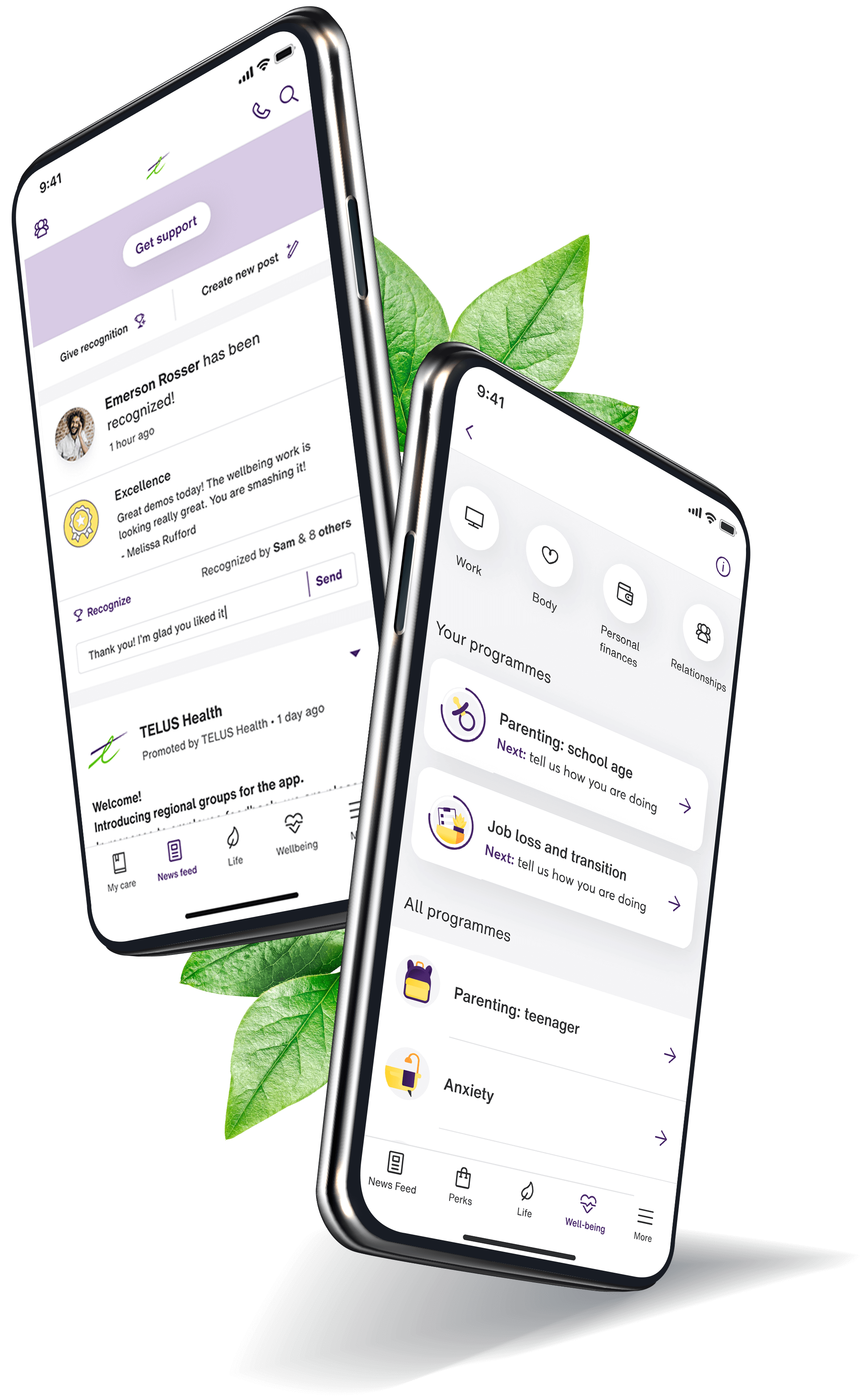Physical health: Taking care of your body helps care for your mind
Mental and physical health are closely linked – one often affects the other. Poor physical health can lead to poor mental health, and poor mental health can precipitate or worsen physical problems, causing a cycle that may be hard to break.
Chronic conditions
A chronic condition, one that is defined as persistent or otherwise long-lasting in its effects, can play havoc with your mental health. It is always stressful to learn that you have a disease like cancer, diabetes, or hypertension, and then have to manage the illness. There may also be problems such as pain, fatigue, or nausea caused by the illness itself or by the treatments. These can all affect how you feel emotionally and how you perform mentally.
Acute conditions
Illnesses do not have to be chronic to trigger anxiety or depression. An acute illness or injury can also affect your mental health, even though they may not last long:
- Back pain may keep you from participating in your favourite activities.
- A broken leg may make it hard to get out and about.
- A broken arm may keep you from preparing healthy meals or work on a hobby.
- A virus, like a stomach bug or flu, may make you feel anxious, especially if you are alone.
Helping yourself
It may be impossible to speed up the healing process or to cure a chronic illness, but there are ways you can reduce the risk of the illness or injury affecting your mental health and wellbeing.
Sleep. If you have had trouble getting the recommended 7 to 8 hours of sleep, here are a few tips that may help:
- Set a schedule and have a bedtime routine, every night.
- Make your bedroom a “no electronics” zone.
- Exercise earlier in the day.
- Avoid caffeine and alcohol. Alcohol may make you sleepy, but it does not allow your body to progress into a deep sleep.
- Do not smoke
Diet. What you eat and how often you eat may be even more important than ever when you are ill or injured. Eating healthy food is essential for your body to function properly and to heal. If your illness is affected by your diet, as it is with diabetes or high blood pressure, there is an even greater need to eat well. The NHS Eatwell Guide is a good place to start to learn what your body needs and how best to achieve optimal nutrition.
Exercise. Some people see the word “exercise” and think about the gym or running a 10K, but exercise does not have to be that disciplined or intense. Just a mild increase in physical activity helps promote a healthy body and, in turn, a healthy mind. Even people who have physical limitations, such as back pain or a broken limb, can move around – they just have to be more careful and choose their activities wisely. Some activities may include:
- Walking
- Gardening
- Dancing
- Using the stairs instead of the lift or escalator
Your path to optimal wellbeing begins with a commitment to improve your physical health.
Taking care of your physical health is an important part of taking care of your mental health. Not understanding that link between physical and mental health is one reason why so many of us fail in our attempts to make better lifestyle choices.


